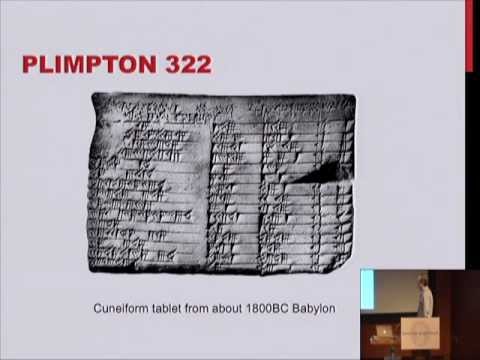Abstract
One of the oldest subjects in mathematics is the study of Diophantine equations, i.e., the study of whole number (or fractional) solutions to polynomial equations. It remains one of the most active areas of mathematics today. Perhaps the most basic tool is the simple idea of “congruences,” particularly congruences modulo a prime number. In this talk, Richard Taylor, Professor in the School of Mathematics, introduces prime numbers and congruences and illustrates their connection to Diophantine equations. He also describes recent progress in this area, an application, and reciprocity laws, which lie at the heart of much recent progress on Diophantine equations, including Wiles’s proof of Fermat’s last theorem.
